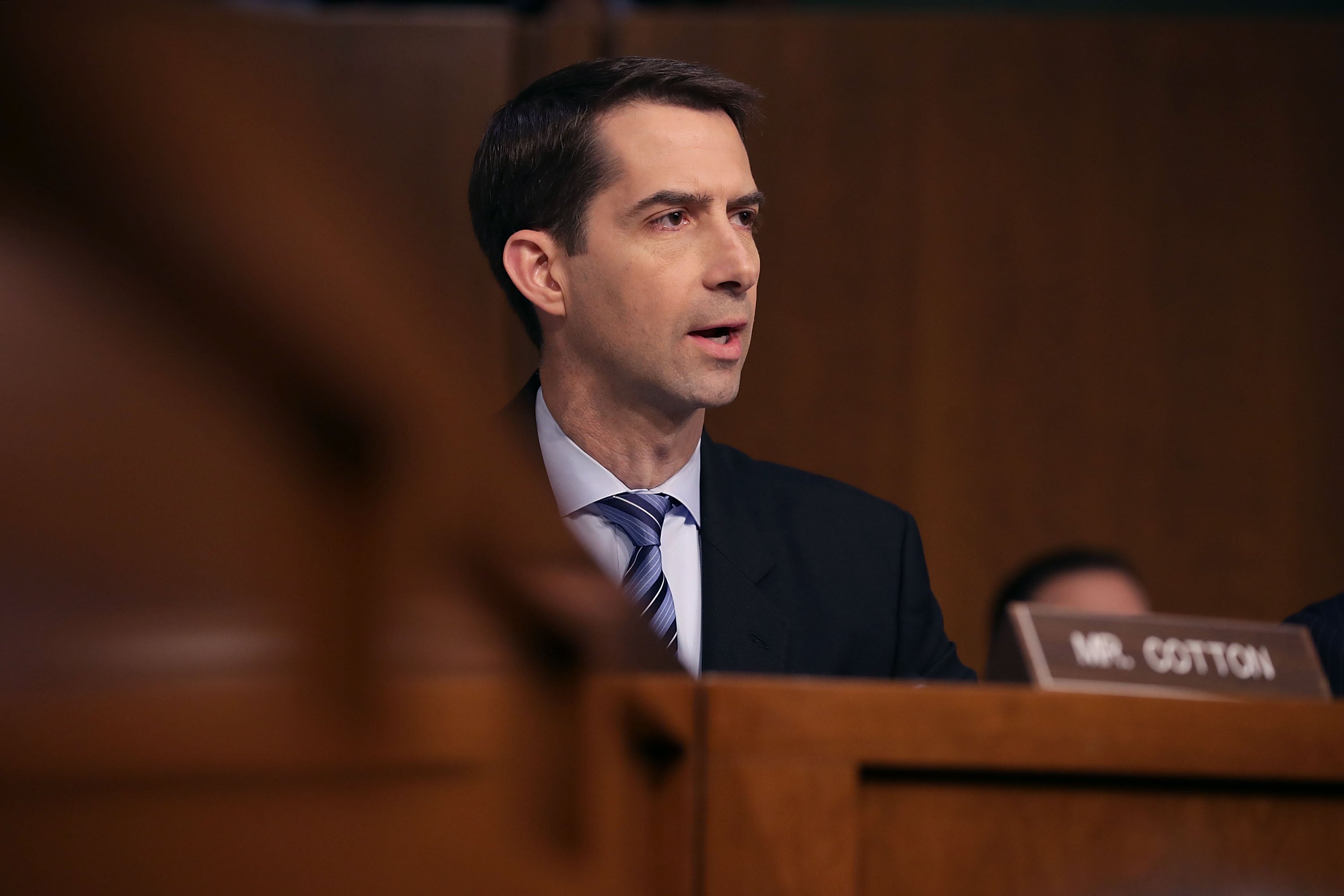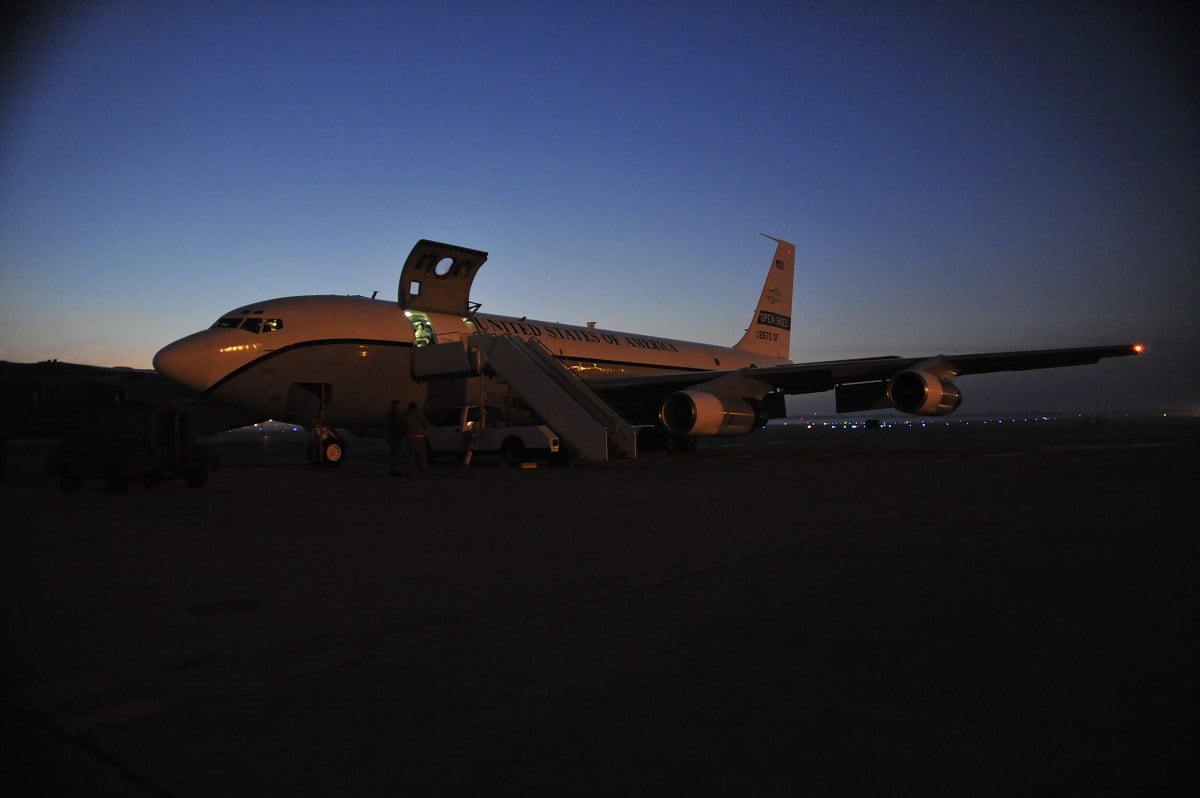WASHINGTON ― U.S. President Donald Trump on Friday plans to sign legislation that would make it more difficult for him to leave a landmark, 34-nation reconnaissance treaty, even as he is weighing leaving it.
The 2020 defense policy bill passed by Congress would require the president consult Congress and wait four months before withdrawing from the Open Skies Treaty, which includes Russia and allows mutual overflights of each signatory’s territory. The 2020 defense appropriations bill would provide $41.5 million to begin replacing the aging Boeing OC-135B aircraft that America uses for its Open Skies flights.
Senate Strategic Forces Subcommittee Chairwoman Deb Fischer, R-Neb., said the legislative language "puts a marker on the table: Open Skies is a treaty we should remain in.
“As long as the mission is there, we want to make sure there are proper planes, proper resources to make it go ― and that was my push all along,” Fischer said. “We are still in the treaty, let’s make sure we have planes that work for these guys that are going to have to do [the mission].”
Allies and arms control advocates have been lobbying in favor of the treaty as a valuable channel for transparency and dialogue between Russia and the U.S. Trump signing the authorization and appropriations bills into law will be a win for both camps.
"If you’re in need of more evidence that Congress does not want the Trump administration to withdraw the United States from the Open Skies Treaty, both the final fiscal year 2020 defense authorization and appropriations bills provide it,” said the Arms Control Association’s director for disarmament and threat reduction policy, Kingston Reif.
Earlier this month, the Senate Subcommittee on Airland Chairman Tom Cotton, R-Ark., authored an op-ed in The Washington Post titled, “The Open Skies treaty is giving Russia spying capabilities. End it.” Cotton argued that Russia allows limited overflights of areas where it is engaged in covert military operations, but sends spy planes over U.S. military installations or over Trump’s retreat in Bedminster, New Jersey.

Along these lines, the Trump administration has told European allies that Russia is abusing the treaty by targeting critical U.S. infrastructure. The White House is pressing those allies to find a solution. The administration has also launched an internal interagency process to chart a course forward on the treaty.
In the meantime, some lawmakers complain the administration has been opaque with Congress about its actions. According to a congressional aide, State Department and Pentagon officials were recently set to speak at a joint, bipartisan briefing to the House Armed Services and Foreign Affairs committees, but canceled just as the briefing was to begin.
The 2020 National Defense Authorization Act would require congressional notification and a 120-day waiting period before any intent to withdraw from the Open Skies Treaty, or the 2010 arms reduction treaty, New START.
The legislation is a victory for Congress’ Nebraska delegation, which worked to secure both the funding and policy restrictions. On Thursday, Nebraska Republican Rep. Don Bacon, a former commander of the 55th Wing at Offutt Air Force Base, Nebraska, and a member of the House Armed Services Committee, was jubilant.
“You can say, ‘Bacon brought home the bacon,’ ” he said.
According to Bacon, the Air Force has sought a second Open Skies aircraft, but the White House is interested in defunding it ― though it has not formally made that request to Congress.
Meanwhile, he said he has worked through a bipartisan coalition to protect the treaty.
“I’m not saying I will always fight for this, but you’ve got to make a case [to withdraw]," he said, "and nobody [from the administration] made a case to us why we should withdraw.”
Joe Gould was the senior Pentagon reporter for Defense News, covering the intersection of national security policy, politics and the defense industry. He had previously served as Congress reporter.





